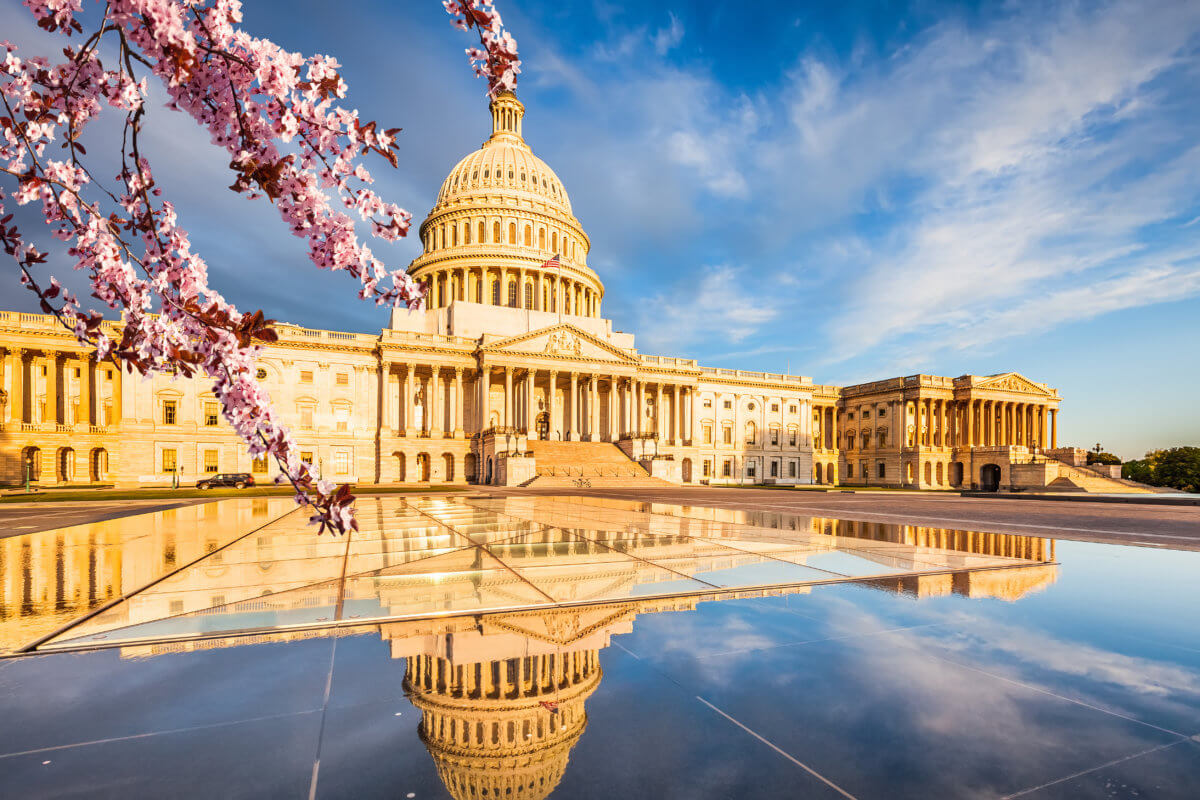 by Madeline Grant, NCIA’s Government Relations Manager
by Madeline Grant, NCIA’s Government Relations Manager
The Secure and Fair Enforcement (SAFE) Act, or H.R. 1996, passed the U.S House of Representatives with a final recorded vote of 321-101. This is the first floor action on a cannabis reform bill this Congress. This is not the first time we’ve seen movement on this bipartisan piece of legislation that would protect banks that service state-legal marijuana businesses from being penalized by federal regulators. The bill was reintroduced in March by Reps. Ed Perlmutter (D-CO), Steve Stivers (R-OH), Nydia Velazquez (D-NY), and Warren Davidson (R-OH), and had 177 total cosponsors by the time of the vote. The bill was taken up under a process known as suspension of the rules, which requires a 2/3rd supermajority to pass and does not allow for amendments. This is the fourth time that the House has approved the language of the SAFE Banking Act, initially as the first standalone cannabis policy reform bill ever passed by either chamber of Congress in 2019 and two more times last year as part of pandemic relief packages that were not approved in the Senate.
What does the SAFE Banking Act do, exactly?
The SAFE Banking Act would protect financial institutions from federal prosecution for providing banking and other services to cannabis businesses that are in compliance with state law, as well as help address serious public health and safety concerns caused by operating in predominantly cash-only environments. The legislation would improve the operational viability of small businesses by helping them reduce costs associated with lack of access to banking and increasing options for traditional lending that many small businesses in other fields rely upon. It would also mandate a study on diversity in the cannabis industry.The SAFE Banking Act seeks to harmonize federal and state law by prohibiting federal banking regulators from: threatening or limited a depository institutions access to the Deposit Insurance Fund, discouraging, prohibiting, or penalizing depository institutions from dealing with the cannabis industry, taking any action against a loan made to a covered business and forcing a depository institution to halt providing any kind of banking services.
Let’s take a look at the history of SAFE Banking in Congress…
2013-2015
Legislation to provide safe harbor for financial institutions that choose to service the cannabis industry was first introduced in 2013 and was called the “Marijuana Businesses Access to Banking Act.” When the bill died in Congress, it had 32 cosponsors and no Senate companion legislation. The bill was reintroduced in 2015 with the same name and 39 cosponsors and a Senate companion with 11 cosponsors.
2017
In 2017, the bill was reintroduced and renamed the Secure and Fair Enforcement (SAFE) Banking Act. By the end of that session, the bill had 95 cosponsors and the Senate companion bill had 20 cosponsors.
2019
On March 7, SAFE Banking was introduced in the House by Rep. Ed Perlmutter (D-CO) and was referred to the Judiciary and Financial Services Committees. On March 28, 2019, the Financial Services Committee voted 45 to 15 to advance the bill to the full House. The bill had broad bipartisan support with 153 cosponsors, over a third of the entire House, at the time of the committee vote (a major jump from 2017). On April 1, Senator Jeff Merkley (D-OR) introduced a companion bill to the Senate and the bill was referred to the Senate Banking, Housing, and Urban Affairs Committee. On June 6, the House bill moved out of committee and was placed on the Union calendar for a vote. The bill then passed the House by 321-103.
2020
Congress spent 2020 legislating relief legislation for Americans as the coronavirus took a toll across our nation. SAFE Banking language was also included in two coronavirus relief packages that the House approved, but unfortunately, did not make it through the Senate.
One thing is abundantly clear, states are continuing to legalize cannabis and the federal government must mitigate the state and federal conflict that legal cannabis businesses are facing. Access to banking is not only essential for any business to function, but a necessary measure for public safety. Laws making cannabis legal for adults have been passed in 18 states as well as the District of Columbia and the territories of CNMI and Guam, and 36 states, as well as several territories, have comprehensive medical cannabis laws. As the House of Representatives, again, has passed SAFE Banking, we will turn our focus to the Senate and keep up the momentum. Make sure when you have a few minutes call your senators and urge them to support the SAFE Banking Act, S. 910. You can look up your senators’ information HERE.


Follow NCIA
Newsletter
Facebook
Twitter
LinkedIn
Instagram
–